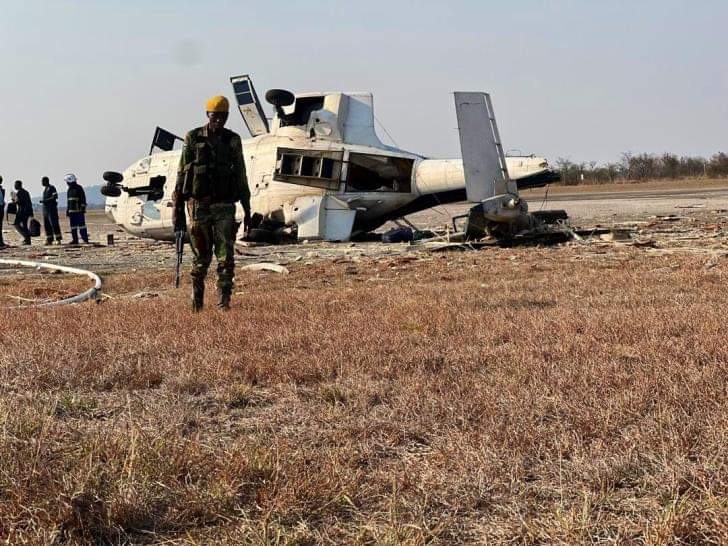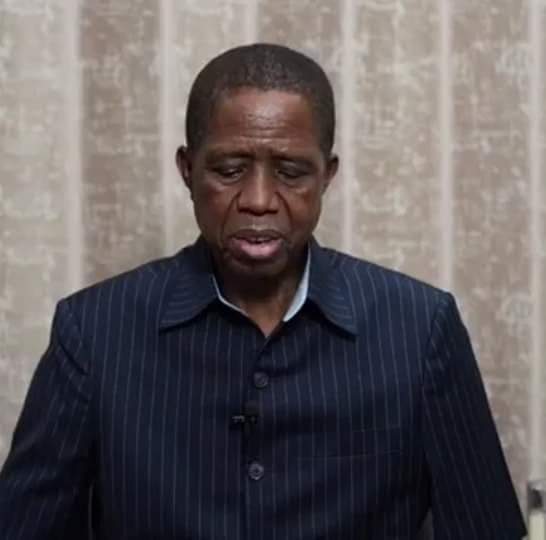By Burnett Munthali
Introduction
Rick Dzida is a respected Malawian social commentator with deep insight into political developments and governance issues in Malawi. He is known for his thoughtful and fearless analysis, often touching on sensitive topics such as corruption, human rights, and the challenges facing the political landscape. With years of experience in analyzing Malawian politics and public affairs, Rick has become a prominent voice in the discourse on national progress and democratic principles. His commentary is widely followed, providing critical perspectives on issues affecting Malawians from all walks of life.
We are delighted to have Rick Dzida with us today for an insightful interview. As a social commentator with a deep understanding of Malawi’s political dynamics, Rick’s perspectives are valuable as we dive into some of the most pressing issues in the country today. Rick, thank you for joining us. We look forward to hearing your thoughts on the developments surrounding the Malawi Communications Authority (MACRA), spyware allegations, and the potential political ramifications.
Welcome note:
We are delighted to have Rick Dzida with us today for an insightful interview. As a social commentator with a deep understanding of Malawi’s political dynamics, Rick’s perspectives are valuable as we dive into some of the most pressing issues in the country today. Rick, thank you for joining us. We look forward to hearing your thoughts on the developments surrounding the Malawi Communications Authority (MACRA), spyware allegations, and the potential political ramifications.
Questions
1) Rick, there have been allegations that MACRA’s recent purchase of spyware software for over US$1.5 million could be linked to Israel’s notorious Pegasus spyware. What are your thoughts on the government’s acquisition of such high-tech surveillance tools, especially in light of ongoing political tensions and economic challenges in Malawi?
Rick Dzida: The recent allegations surrounding MACRA’s purchase of spyware software for over US$1.5 million are certainly concerning, especially if it’s linked to Israel’s notorious Pegasus spyware.
This type of surveillance technology can be incredibly invasive, allowing governments to access sensitive information like text messages, emails, and even microphone and camera recordings.
In the context of Malawi’s ongoing political tensions and economic challenges, the acquisition of such high-tech surveillance tools raises several red flags.
It’s possible that the government may use this technology to monitor and suppress dissenting voices, rather than addressing the underlying issues driving social unrest.
Furthermore, the use of spyware can also have serious implications for citizens’ right to privacy and freedom of expression.
It’s essential for the government to ensure that any surveillance activities are transparent, proportionate, and in line with international human rights standards.
It’s also worth noting that MACRA’s spokesperson mentioned that one motivation for acquiring the new revenue assurance system is to track mobile money transactions .
While this may be a legitimate goal, it’s crucial to ensure that any measures taken to achieve this goal do not compromise citizens’ rights or perpetuate surveillance.
Ultimately, the government must prioritize transparency and accountability in its use of surveillance technology, and ensure that any measures taken are proportionate to the threats they aim to address.
2) The installation of this spyware system is reportedly happening with the assistance of a foreign team from Ghana. What do you think about the use of foreign contractors in sensitive government surveillance operations? Could this potentially compromise Malawi’s sovereignty or raise questions about its relations with foreign powers?
Rick Dzida: The use of foreign contractors in sensitive government surveillance operations raises several concerns.
Firstly, it can potentially compromise Malawi’s sovereignty, as foreign entities may have access to sensitive information and influence over domestic surveillance activities.
Moreover, relying on foreign contractors can create risks related to data protection and privacy. Sensitive information may be shared or stored in ways that are not compliant with local laws and regulations, which can have serious consequences for citizens’ rights and freedoms.
There’s also the issue of accountability and transparency. When foreign contractors are involved, it can be challenging to determine who is responsible for surveillance activities and how they are being conducted. This lack of accountability can erode trust in government institutions and create an environment of secrecy and mistrust.
Furthermore, the involvement of foreign contractors can raise questions about Malawi’s relations with foreign powers. Are these contractors working solely in the interests of the Malawian government, or are they also serving the interests of their home countries?
This can create tensions and conflicts of interest that can have far-reaching consequences for Malawi’s foreign relations and national security.
3) Ghana has faced significant controversy over the misuse of Pegasus spyware, which was allegedly used to target political opponents, journalists, and activists. Do you think there is a risk that similar tactics could be employed in Malawi, particularly in the lead-up to the 2025 elections?
Rick Dzida: The controversy surrounding Ghana’s misuse of Pegasus spyware is alarming, and it’s natural to worry about similar tactics being employed in Malawi, especially with the 2025 elections looming.
Malawi’s political landscape is already complex, with opposition parties forming alliances to challenge the ruling Malawi Congress Party (MCP) .
The use of spyware could further destabilize the political environment and undermine trust in institutions.
The recent acquisition of a new election technology system by the Malawi Electoral Commission (MEC) has also raised concerns about the potential for manipulation or bias.
While the MEC has defended its procurement process, opposition parties have expressed skepticism about the system’s credibility and security.
Given these factors, it’s essential for Malawi to prioritize transparency, accountability, and electoral integrity in the lead-up to the 2025 elections.
This includes ensuring the independence and impartiality of the MEC, as well as implementing robust safeguards against the misuse of technology, including spyware.
4) In your opinion, how does the purchase of such surveillance tools align with the current administration’s track record on human rights, particularly in the context of press freedom and political dissent? Do you believe there is a growing climate of fear or censorship in Malawi?
Rick Dzida: The purchase of surveillance tools, such as the alleged Pegasus spyware, raises concerns about the current administration’s commitment to human rights, particularly press freedom and political dissent.
Malawi has a history of democratic governance and respect for human rights, but recent developments suggest a worrying trend.
The current administration has been criticized for its handling of opposition protests, arrests of activists, and restrictions on press freedom.
The acquisition of surveillance tools could exacerbate these concerns, potentially creating a climate of fear and censorship. Journalists, activists, and opposition leaders may feel intimidated or monitored, leading to self-censorship and a chilling effect on free speech.
Furthermore, the lack of transparency and oversight in the procurement process raises questions about accountability and the potential for abuse.
Without robust safeguards, these tools could be used to target individuals or groups deemed critical of the government, undermining the principles of democracy and human rights.
In this context, it’s essential for the administration to reassure the public that these tools will not be used to suppress dissent or stifle free speech.
The government must demonstrate a commitment to transparency, accountability, and human rights, ensuring that any surveillance activities are proportionate, necessary, and in line with international standards.
5) Given the mounting concerns about the misuse of spyware in countries like Ghana, what steps should the Malawian government take to ensure transparency, accountability, and the protection of citizens’ privacy rights, especially in relation to surveillance programs funded with taxpayer money?
Rick Dzida : To address concerns about the misuse of spyware and ensure transparency, accountability,8 and protection of citizens’ privacy rights, the Malawian government should take the following steps :
1. Formulate Legislative Framework
Enact comprehensive surveillance laws by developing and passing laws that regulate the use of surveillance technology, ensuring that any surveillance activities are proportionate, necessary, and in line with international human rights standards.
Establish clear guidelines and protocols. Develop guidelines and protocols for the use of surveillance technology, including criteria for targeting individuals or groups, and procedures for obtaining warrants or approvals.
2. Promote Oversight and Accountability
Establish an independent body to oversee the use of surveillance technology, ensuring that it is used in accordance with the law and respecting citizens’ privacy rights.
Conduct regular audits and inspections to ensure that surveillance technology is being used appropriately and that data is being handled securely.
Establish robust whistleblower protection mechanisms to encourage reporting of any misuse of surveillance technology.
3. Promote Transparency
Disclose information about surveillance programs, including the technology used, the purposes of surveillance, and the safeguards in place to protect citizens’ privacy rights.
Publish annual reports on the use of surveillance technology, including statistics on the number of individuals or groups targeted, and any instances of misuse or abuse.
4. Ensure the Protection of Citizens’ Privacy Rights
Enact comprehensive data protection laws that regulate the collection, storage, and use of personal data.
Ensure that surveillance technology is designed and implemented with robust encryption and security measures to protect citizens’ personal data.
Establish mechanisms for citizens to access and correct their personal data held by surveillance agencies.
5. Enhance International Cooperation
Collaborate with international organizations, such as the United Nations, to ensure that Malawi’s surveillance laws and practices align with international human rights standards.
Share best practices with other countries to ensure that surveillance technology is used responsibly and with respect for citizens’ privacy rights.
Burnett Munthali: Rick, before we conclude, do you have any final thoughts or words you’d like to share with the Malawian public regarding the surveillance issue or any other matter of national importance?
Rick Dzida:
I’d like to urge the Malawian public to remain vigilant and engaged in these critical conversations. We cannot afford to let our rights and freedoms be compromised in the name of security or technological advancement. Transparency, accountability, and respect for human rights must always be at the forefront of our governance and political processes. Let’s continue pushing for democratic integrity, especially as we approach the 2025 elections.
Burnett Munthali: On behalf of everyone reading today, I would like to extend our deepest thanks to Rick Dzida for joining us and sharing his invaluable insights. His thoughtful analysis has been instrumental in shedding light on these critical issues. Thank you, Rick, for your time, and for your continuous dedication to truth and justice in Malawi. Your voice remains a guiding light for




